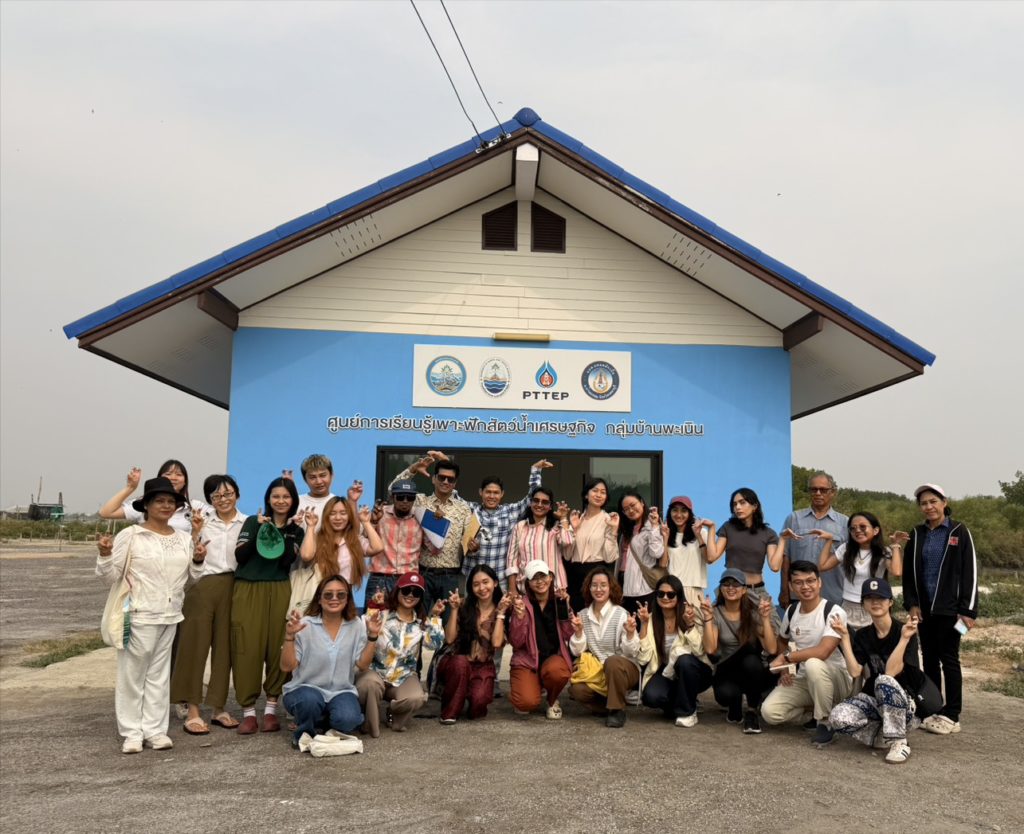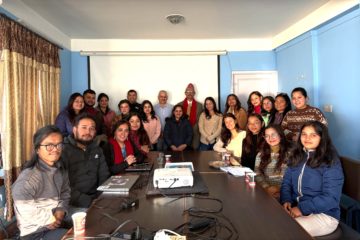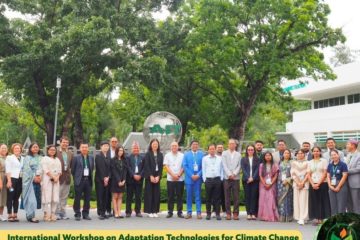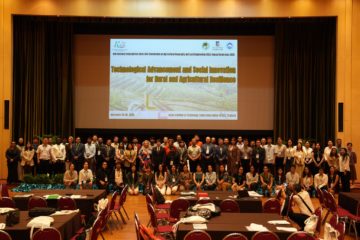Bridging Theory and Practice: GDS Students Conduct Field Study in Laem Phak Bia, Phetchaburi
Published by DDS on

Bridging Theory and Practice: GDS Students Conduct Field Study in Laem Phak Bia, Phetchaburi
A key strength of the Gender and Development Studies (GDS) program at the Asian Institute of Technology (AIT) is its emphasis on experiential learning. The course “Gender Analysis and Gender-Responsive Development Planning” integrates field studies as a vital component, allowing students to engage with local communities and apply gender analysis in real-world contexts. Through direct interactions, observations, and discussions, students deepen their understanding of how gender shapes everyday life, livelihoods, and social structures.


A Coastal Learning Experience
From March 20 to 23, 2025, GDS students embarked on a four-day immersive field study in Laem Phak Bia, a sub-district in Phetchaburi province. Known for its rich coastal economy, the area has long relied on small-scale fisheries, salt farming, and aquaculture. However, in response to changing environmental and economic conditions, the community has introduced new livelihood strategies, such as the cultivation of sea grapes as an alternative income source.
During the visit, students had the opportunity to observe and engage with local families, community leaders, and workers, gaining firsthand insights into the social roles, labor dynamics, and access to resources within the community. This allowed them to explore how gender roles influence economic participation and decision-making processes, particularly in traditionally male-dominated sectors like fisheries and emerging industries like sustainable aquaculture.


Bridging Gender, Environment, and Social Change
Beyond economic activities, the field study also covered broader social and environmental aspects, including education, healthcare, and climate adaptation strategies. Students explored how local communities navigate environmental challenges, access essential services, and organize community-based initiatives to improve resilience. These discussions highlighted the interconnectedness of gender, social equity, and sustainable development, reinforcing the need for inclusive policies and interventions.
By engaging directly with the community, GDS students honed essential research skills such as conducting gender-sensitive interviews, participatory observations, and field-based data collection. These hands-on experiences are crucial in developing critical thinking, policy analysis, and advocacy skills that will serve them in future careers focused on gender equality, labor rights, social justice, and environmental sustainability.

Empowering Future Changemakers
At its core, the GDS program at AIT is designed to equip students with the knowledge and practical skills needed to drive meaningful social change. Whether they are interested in gender justice, economic empowerment, or environmental sustainability, field studies like this provide invaluable real-world learning experiences that prepare students to become effective advocates, researchers, and policymakers.
For those passionate about making a difference, the GDS program offers a dynamic and interdisciplinary platform to explore and address pressing global challenges.
🔗 Learn more about the Gender and Development Studies program at AIT: Gender and Development Studies, AIT
📢 Admissions Open for August 2025 Intake!



